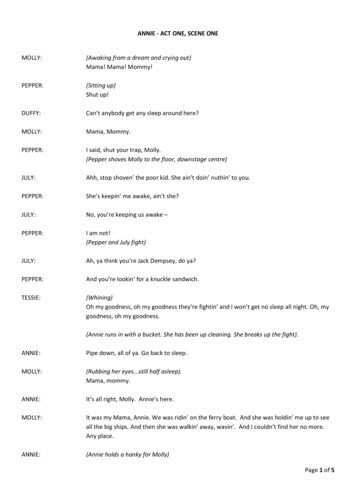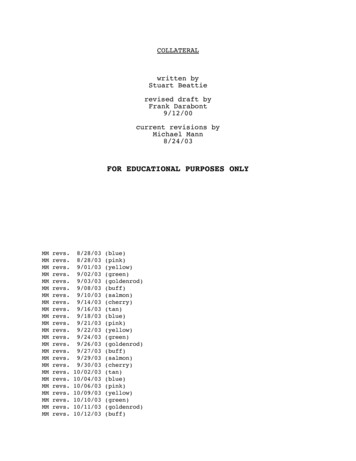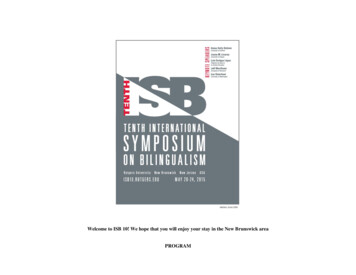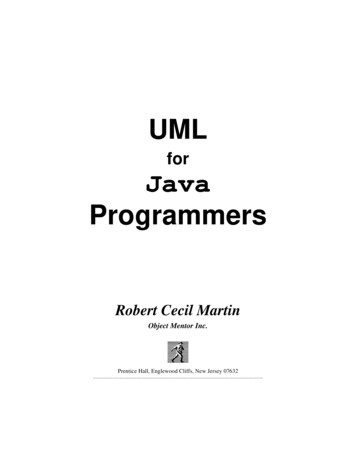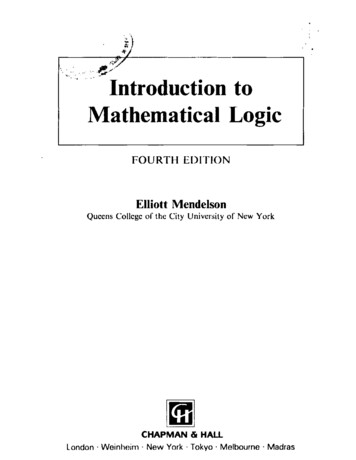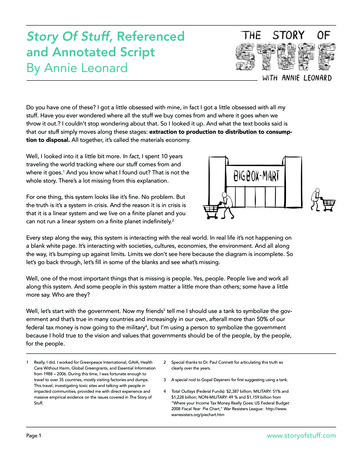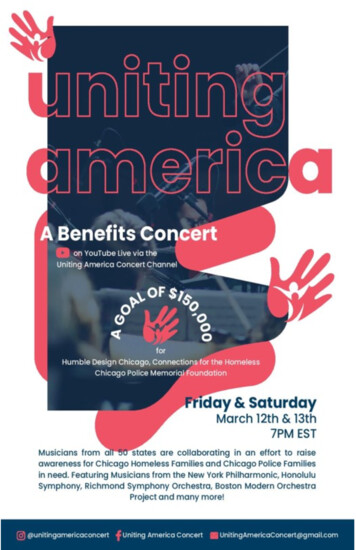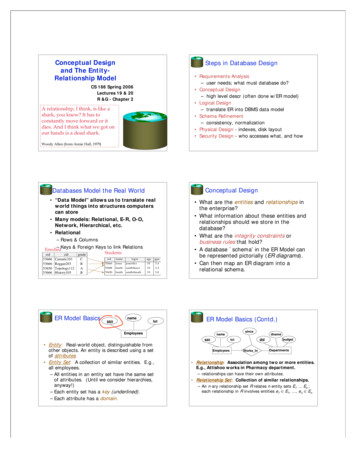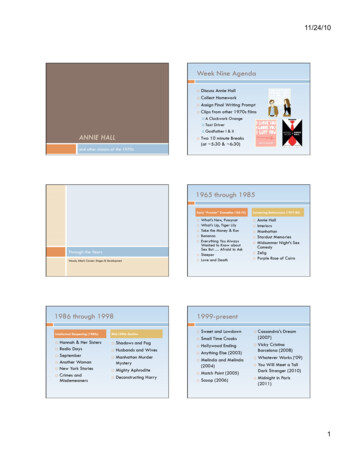
Transcription
11/24/10Week Nine Agenda Discuss Annie HallCollect HomeworkAssign Final Writing PromptClips from other 1970s films AClockwork OrangeDriver Godfather I & II TaxiANNIE HALL Two 10 minute Breaks(at 5:30 & 6:30)and other classics of the 1970s1965 through 1985Early “Funnier” Comedies (‘65-75) Through the Years Woody Allen’s Career: Stages & Development1986 through 1998Intellectual Deepening (1980s) Hannah & Her SistersRadio DaysSeptemberAnother WomanNew York StoriesCrimes andMisdemeaners Annie HallInteriorsManhattanStardust MemoriesMidsummer Night’s SexComedyZeligPurple Rose of Cairo1999-presentMid-1990s Decline What’s New, PussycatWhat’s Up, Tiger LilyTake the Money & RunBananasEverything You AlwaysWanted to Know aboutSex But Afraid to AskSleeperLove and DeathIncreasing Seriousness (1977-85)Shadows and FogHusbands and WivesManhattan MurderMysteryMighty AphroditeDeconstructing Harry Sweet and LowdownSmall Time CrooksHollywood EndingAnything Else (2003)Melinda and Melinda(2004)Match Point (2005)Scoop (2006) Cassandra’s Dream(2007)Vicky CristinaBarcelona (2008)Whatever Works (‘09)You Will Meet a TallDark Stranger (2010)Midnight in Paris(2011)1
11/24/10From New York to EuropeLife-sized statue ofAllen in Oviedo, Spain“In the United States things havechanged a lot, and it’s hard tomake good small films now.Annie Hall“A Nervous Comedy”“The avaricious studios couldn’t careless about good films – if they geta good film they’re twice as happybut money-making films are theirgoal. They only want these 100million pictures that make 500million.” -- Allen in 2004Allen on Annie Hall “I had the courage toabandon just clowningaround and the safety ofcomplete broad comedy.I said to myself, ‘I think Iwill try and make somedeeper film and not beas funny in the same way.And maybe there will be other values that will emerge,that will be interesting or nourishing for the audience.’And it worked out very very well.”-- Woody Allen on Woody Allen (1995)Autobiographical Bits Backgrounds & ContextsDiane Keaton’s real name isDiane HallHer nickname was “Annie”She and Allen dated priorto making the filmDuring a flashback scene,a teacher writes Dec. 1 on the blackboard. Allen’sbirthday he also would have been 7 at thetime of that scene, like the character Original Title Anhedonia Inabilityto feel pleasurecouldn’t figure out how topromote the film and also definethe title Studio Re-cut as romantic comedy Titlechanged 3 weeks beforepremiere Earlier murder mystery plot didn’twork and was cutReputation Academy Awards, 1977 BestPicture (beating Star Wars)Actress, Lead Best Director Best Screenplay Nominated, Best Actor, Lead Best American Film Institute #35 #4on 100 Best Movieson 100 Best Comedies2
11/24/10Fun Trivia Sneezing into thepretend-cocaine wasaccidental but toofunny to cutHouse under therollercoaster was theKensington Hotel in Coney Island, NY.Trivia, continued Famous young actors in the film include: JeffGoldblumWalken Sigourney Weaver Shelley Duvall Carol Kane Christopher Bothwere demolished in 2000joking alternate title was “Rollercoaster NamedDesire” AFamous People, continued Did You Like it?Famous cultural figures include: TrumanCapote (uncredited) “there’sthe winner of theTruman Capote look-alike contest” MarshallYour Reactions McLuhan “Youknow nothing of my work! How you got to teach acourse in anything is totally amazing!” Paul DickSimonCavettThematic OppositionsThemes & MeaningWhat are the major themes of Annie Hall?“Heart” LaughterGenuine-nessPhysicality/BodyLifeLove & LustConsciousnessNew York?“Head” Serious-nessPretention, red consciousnessLos Angeles?3
11/24/10Life and Death Why is this film – acomedy, a “nervouscomedy” – so fascinatedwith death?How does death – thefear of it, the lurkingpresence of it – affect the characters?What, if anything, is suggested as an antidote todeath?Death, continued “There's an old joke – two elderly women are at aCatskill mountain resort, and one of 'em says, ‘Boy,the food at this place is really terrible.’ The otherone says, ‘Yeah, I know; and such small portions.’Well, that's essentially how I feel about life – full ofloneliness and miseryand suffering and unhappiness – and it’s allover much too quickly.”Love and Sex How does love function for the characters?Is it redemptive? Does it free one from the self?Or does it function differently – a confusion orscattering of the self?Does sex operatedifferently from lovein the film? How so?Like Kane, do any ofthese characters do “everything for love”?Two Brilliant Riffs on DeathOpening MonologueYouTube: www.youtube.com/watch?v rrxlfvI17oYNight-chat with DuaneYouTube: www.youtube.com/watch?v PSRm X3BLPUDeath, continued “Can I confess something? I tell you this as an artist, Ithink you'll understand. Sometimes when I'm drivingon the road at night I see two headlights comingtoward me. Fast. I have this sudden impulse to turnthe wheel quickly, head-on into the oncoming car. Ican anticipate theexplosion. The sound ofshattering glass. Theflames rising out of theflowing gasoline ”Love and Sex, continued “The the other important joke, for me, is one that'susually attributed to Groucho Marx, and it goeslike this ‘I would never want to belong to anyclub that would have someone like me for amember.’That's the key joke ofmy adult life, in termsof my relationshipswith women.”4
11/24/10Love and Sex, continued Love & Sex, continuedAlvy's analyst: How often do you sleep together? Annie's analyst: Do you have sex often? Alvy (lamenting):Hardly ever, maybethree times a week.Annie (complaining):Constantly, I'd saythree times a week.Theme of Performance Why are so many charactersinvolved with performing? Alvy is a stand up comedianBest friend in is TVAnnie becomes a musicianPaul Simon’s characterWhat relationship existsbetween performing andidentity? Both as always inpermanent crisis“Hold on” mentality/messageRenounce PerfectionismPerhaps “muddling along” is really all you cando – but it’s not a failure; it’s the normSubtitled balcony scene & “Love fades” sceneTheme of Performance Different roles/faces “Preparea face to meet the faces that you’ll meet”(T.S. Eliot, “Love Song of J. Alfred Prufrock”) “Success in life is being able to merge your private withyour public self (Aldous Huxley) What is your “true”self?Acting naturally vs.faking itAlvy Singer Why “Annie Hall”? Or why not “Alvy Singer”? Did you like WoodyAllen’s character?What defines him?Is he a sympatheticnarrator? What makeshim so?Would you view him differently if the film’s point ofview was not his?Is he an Everyman character? Why/why not?5
11/24/10Alvy as Everyman? Chief characteristics:dweeb Sympathetic loser Egotistical & hostile yetalso self-effacing Quintessential Americantype: loveable underdogAnnie Hall Bumbling Did you like DianeKeaton’s character?What defines her?Is she sympathetic?What makes her so? Crucial that the point of view be his Nota traditional leading man – because hopelesslyflawed – but very realisticAnnie Hall as Every(wo)man Similar Characteristics Alsosympathetic loser Awkward yet natural Self-effacing yet self-aware Seemingly lost but constantlysearching Quintessential American type: loveable underdog Everyman/Every(wo)man Quotationfrom MartinAmis, TheInformation,1995loveable quirkiness requires mystery & distance continued"And what would account for it?”“The history of astronomy. The history of astronomyis the history of increasing humiliation. First thegeocentric universe, then the heliocentric universe.Then the eccentric universe – the one we're living in.Every century we get smaller. Kant figured it allout, sitting in his armchair. What's the phrase? Theprinciple of terrestrial mediocrity." "It would be a book accounting for thedecline in the status and virtue of literaryprotagonists.First gods, then demigods, then kings, thengreat warriors, great lovers, then burghersand merchants and vicars and doctors andlawyers. Then social realism: you. Thenirony: me. Then maniacs and murderers,tramps, mobs, rabble, flotsam, vermin.”Crucial that the point of view not be hers Her What characteristics doesshe share with Alvy?Is she an Every(wo)mancharacter? Why/why not?Family Everyone’s family is dysfunctional “Theyf you up, your mom anddad” (Philip Larkin) House under the roller coaster Father’s job with bumper cars Annie’s brother (C. Walken) Siblingsalways seem poised totake each other down Easter dinner scene6
11/24/10New York, New York Metonymic of modern world Noise,confusion, uncertaintymetropolis thwartsconfidence Vibrant street life plays intocomic scenes Teeming What’s the big deal with New York?New York, continued “Don't you see the rest ofthe country looks upon New York like we're leftwing, communist, Jewish, homosexual pornographers? I think of us that way sometimes and Ilive here.”“Being Lost Together”New York eludes categorization & understanding –like the self and also like relationshipsAllen’s utopia and dystopia wrapped into one Whether in New York or inrelationships, we’re all lost – ortrying to find our way That’sokay, though, if universallyshared All you can do is play your “role”to the best of your ability – holdon, and hope someone will shareyour confusion with youEnding Film ends twice Alvywrites a playthat features Anniereturning to him Annie and Alvy meetup in New York,reminisce, then gotheir separate waysWhy does the film end as it does? “We need the eggs” Comedytriumphsover nervousness7
11/24/10Ending, continued “The major theme of the film is that there aresevere limitations in life (death and loss are thetwo most prevalent), but that art forms (such asthe printed word, films, and plays) have thepower to reshape reality and provide somemeasure of control, thereby compensating forlife's limitations.”-- Tim Dirks, filmsite.orgGenre and Mode Is it possible to label a film as realistic with so manydisjunctive, fantasy elements? LoveIs Annie Hall Realistic?Realism/continuity editing vs. Fantasy/disjunctive editingRealism, continued fades scene Subtitles/balconysceneMcLuhan scene Wicked Queenanimation scene Split screens(dual therapists & Easter dinner scenes) Youth flashbacks, esp. “latency period” scenePerhaps, though, that quirky disregard fortraditional realism actually makes the film seemmore realistic How“realistic” are ourlives? How linear and/orcontinuous are ourthoughts – or ourromantic relationships? Malcolm Is “realism” really something we should strive for?Effect on FashionDiane Keaton vs.Kate Moss Annie Hall look Frumpyyet chicyet distinct Mannish, layered blazers & vests Poofy trousers No wardrobe – D. Keaton usedher own clothes (yet the costumerworked with Ralph Lauren) Briefly became a fashion craze DisheveledForm & MeaningAnnie Hall’s Visual Style8
11/24/10Long Takes Other ElementsAllen “famously likes to shoot most scenes in mastershots with all of the actors onscreen all of the time,instead of cutting on every line of dialogue.” Dialogue-heavy, a true “talkie” “Polite In 2002, David Bordwell pointed out that Allen'saverage shot length (ASL) was 14.5 seconds forAnnie Hall. Other 1977 films he timed had an ASLrange between 4-7 seconds.-- Roger Ebert, May 2002 meaningless words” (Yeats)Unobtrusive camera work,costuming, sets, and locationsUneventful plot & special effectsForm/Meaning Symbiosis Ina film about relationships, therelationships comprise the filmCharacteristic elementsCharacteristic Elements Quirky yet realistic Despitedisjunctive moments (animation, subtitles, etc),film still seems continuous, realistic Can navigate between realism and fantasy withoutalienating viewersLast Week’s Assignment Time-capsule filmmaking Referencesto currentevents & figures & filmsand books Reinforces the film’s realism continued Bumbling, Sympathetic “Loser” as “Hero”Love entanglements that deepen but do not redeemNeed to navigate social/moral/cultural realms fromwhich you feel displaced or ostracizedNew York mentality, and Jewish-nessSeriousness, or existentialism,to the comedyDespite humor, film isexceptionally literate(film literacy & cultural literacy)“Fevered Realism”Other Classics of the 1970s9
11/24/10Top Films of the ‘70sThe Godfather - (1972, Francis Ford Coppola) (Marlon Brando, Al Pacino)The Godfather part II - (1974, Francis Ford Coppola) (Al Pacino, Robert DeNiro)One Flew Over the Cuckoo's Nest - (1975, Milos Forman) (Jack Nicholson, Louise Fletcher)Apocalypse Now - (1979, Francis Ford Coppola) (Martin Sheen, Robert Duvall)Chinatown - (1974, Roman Polanski) (Jack Nicholson, John Huston)A Clockwork Orange - (1971, Stanley Kubrick) (Malcolm McDowell, Patrick MaGee)Star Wars - (1977, George Lucas) (Mark Hamill, Harrison Ford)Jaws - (1975, Steven Spielberg) (Roy Scheider, Richard Dreyfuss)Taxi Driver - (1976, Martin Scorsese) (Robert DeNiro, Jodie Foster)The Deer Hunter - (1978, Michael Cimino) (Robert DeNiro, Christopher Walken)Annie Hall - (1977, Woody Allen) (Woody Allen, Diane Keaton)Network - (1976, Sydney Lumet) (Peter Finch, William Holden)Rocky - (1976, John G. Avildsen) (Sylvester Stallone, Carl Weathers)Patton - (1970, Franklin J. Schaffner) (George C. Scott, Karl Malden)Close Encounters of the Third Kind - (1977, Steven Spielberg) (Richard Dreyfuss, Teri Garr)M*A*S*H - (1970, Robert Altman) (Elliot Gould, Donald Sutherland)The Exorcist - (1973, William Friedkin) (Ellen Burstyn, Linda Blair)American Graffiti - (1973, George Lucas) (Ron Howard, Richard Dreyfuss)The French Connection - (1971, William Friedkin) (Gene Hackman, Roy Scheider)Mean Streets - (1973, Martin Scorsese) (Harvey Keitel, Robert DeNiro)Aguirre, the Wrath of God - (1972, Werner Herzog) (Klaus Kinski) (Cecilia Rivera)Blazing Saddles - (1974, Mel Brooks) (Gene Wilder, Cleavon Little)Last Tango in Paris - (1972, Bernardo Bertolucci) (Marlon Brando, Maria Schneider)Monty Python and the Holy Grail - (1974, Terry Gilliam, Terry Jones) (G. Chapman, Eric Idle)The Rocky Horror Picture Show - (1975, Jim Sharmon) (Tim Curry, Susan Sarandon)A Clockwork OrangeStanley Kubrick, 1971Alex & his Droogs “A bit of the old ultra-violence”Stylized, rather than graphic,violenceFuturistic Orwellian dystopiaNovel by Anthony BurgessTaxi DriverMartin Scorsese, 1976Travis Bickle & Iris “You talkin’ to me?”: Everyman (?!) as enforcer.Raises questions aboutheroism & viewer sympathyNon-stylized violenceGritty, street-level realismThe Godfather & The Godfather Pt. IIFrancis Ford Coppola, 1972 & 197410
11/24/10Gangster Epics Quintessential films about gangsters and theAmerican immigrant experiencefamily vs. societyfamily as societyRedemption, damnation,CatholicismVito vs. Michael Corleone“It’s strictly business”“An offer he couldn’t refuse”Famous Scenes Tom Hagan goes to Hollywood (I. 29:10-33:45)“It’s Strictly Business” (I. 1:11:00-1:15:00) Don’t ask me about my business (I. 2:45:50-2:52:30)You can never lose your family (II.B. 0:00-2:50 & 4:35-6:25) Hail Mary Full of Grace (II.B. 1:01:00-1:05:10) Final Assignment (!) Discuss how one of your favorite films would work ifadded to the syllabus for this class.In your 250-350 words, make sure to discuss: Howyour film would relate – specifically! – with otherfilms on the syllabus How it would continuethe class “dialogue”between form andmeaning What new materialit would offer that iscurrently missing11
11/24/10 1 ANNIE HALL and other classics of the 1970s Week Nine Agenda Discuss Annie Hall Collect Homework Assign Final Writing Prompt Clips from other 1970s films A Clockwork Orange Taxi Driver Godfather I & II Two 10 minute Breaks (at 5:30 & 6:30) Woody Allen's Career: Stages & Development
